If you’ve turned on the news, scrolled through Facebook, or talked to other human beings lately, you may have noticed something: We’re not really getting along. So many political and social issues turn into battlegrounds where people aggressively declare that they’re in the right, and that those who disagree are simply too dumb or misinformed to understand.
But the good news is that it doesn’t have to be this way. We all have the capacity to listen and empathize, and we can inspire others to do the same. So to do your part in healing our divided social discourse, start by checking out the nine thought-provoking books below.
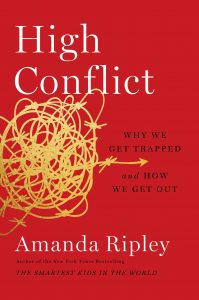
High Conflict: Why We Get Trapped and How We Get Out
By Amanda Ripley
When we are baffled by the insanity of the “other side”—in our politics, at work, or at home—it’s because we aren’t seeing how the conflict itself has taken over. In this timely read, award-winning journalist Amanda Ripley investigates how good people get captured by “high conflict”—and how they break free. View Our “Book Bite” Summary
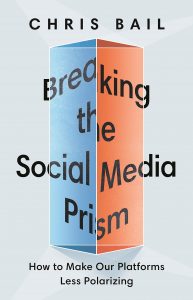
Breaking the Social Media Prism: How to Make Our Platforms Less Polarizing
By Chris Bail
Providing data-driven recommendations for strengthening our social media connections, Breaking the Social Media Prism shows how to combat online polarization without deleting our accounts. View Our “Book Bite” Summary
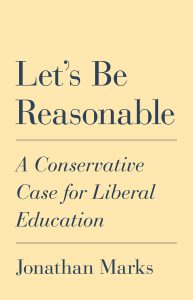
Let’s Be Reasonable: A Conservative Case for Liberal Education
By Jonathan Marks
More than just a campus battlefield guide, Let’s Be Reasonable recovers what is truly liberal about liberal education―the ability to reason for oneself and with others―and shows why the liberally educated person considers reason to be more than just a tool for scoring political points. View Our “Book Bite” Summary
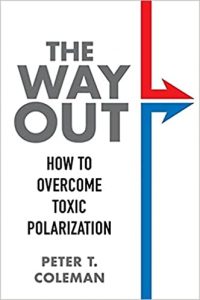
The Way Out: How to Overcome Toxic Polarization
By Peter T. Coleman
Blending personal accounts with cutting-edge research, social psychologist Peter T. Coleman explores how conflict resolution and complexity science provide guidance for dealing with seemingly intractable political differences. View Our “Book Bite” Summary
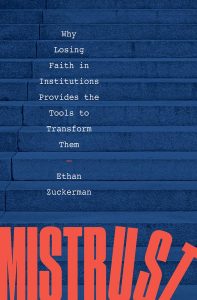
Mistrust: Why Losing Faith in Institutions Provides the Tools to Transform Them
By Ethan Zuckerman
Drawing on work by political scientists, legal theorists, and activists in the streets, Ethan Zuckerman offers a lens for understanding civic engagement that focuses on efficacy, the power of seeing the change you make in the world. View Our “Book Bite” Summary
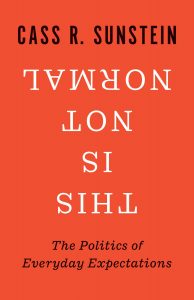
This Is Not Normal: The Politics of Everyday Expectations
By Cass Sunstein
Exploring Nazism, #MeToo, the work of Alexander Hamilton and James Madison, constitutional amendments, pandemics, and the influence of Ayn Rand, Sunstein reveals how norms change, and ultimately determine the shape of society and government around the world. View Our “Book Bite” Summary
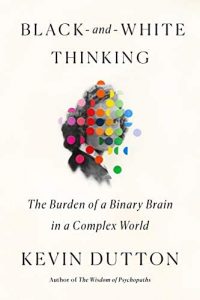
Black-and-White Thinking: The Burden of a Binary Brain in a Complex World
By Kevin Dutton
Using the latest advances in psychology, neuroscience, and evolutionary biology, psychologist Kevin Dutton shows how we can optimize our tendency to categorize, and fine-tune our minds to avoid the pitfalls of too little, and too much, complexity. View Our “Book Bite” Summary
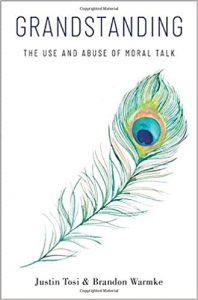
Grandstanding: The Use and Abuse of Moral Talk
By Justin Tosi and Brandon Warmke
Using the analytic tools of psychology and moral philosophy, Tosi and Warmke explain what drives us to grandstand online, and what we stand to lose by taking it too far. Most importantly, they show how, by controlling the impulse to grandstand, we can re-build a public square worth participating in. View Our “Book Bite” Summary
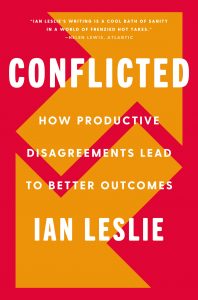
Conflicted: How Productive Disagreements Lead to Better Outcomes
By Ian Leslie
Drawing on advice from relationship scientists, hostage negotiators, and diplomats, New Statesman columnist Ian Leslie shows us how to transform the heat of conflict, disagreement, and argument into the light of insight, creativity, and connection. View Our “Book Bite” Summary
To enjoy Book Bites from anywhere, download the Next Big Idea app today:






























